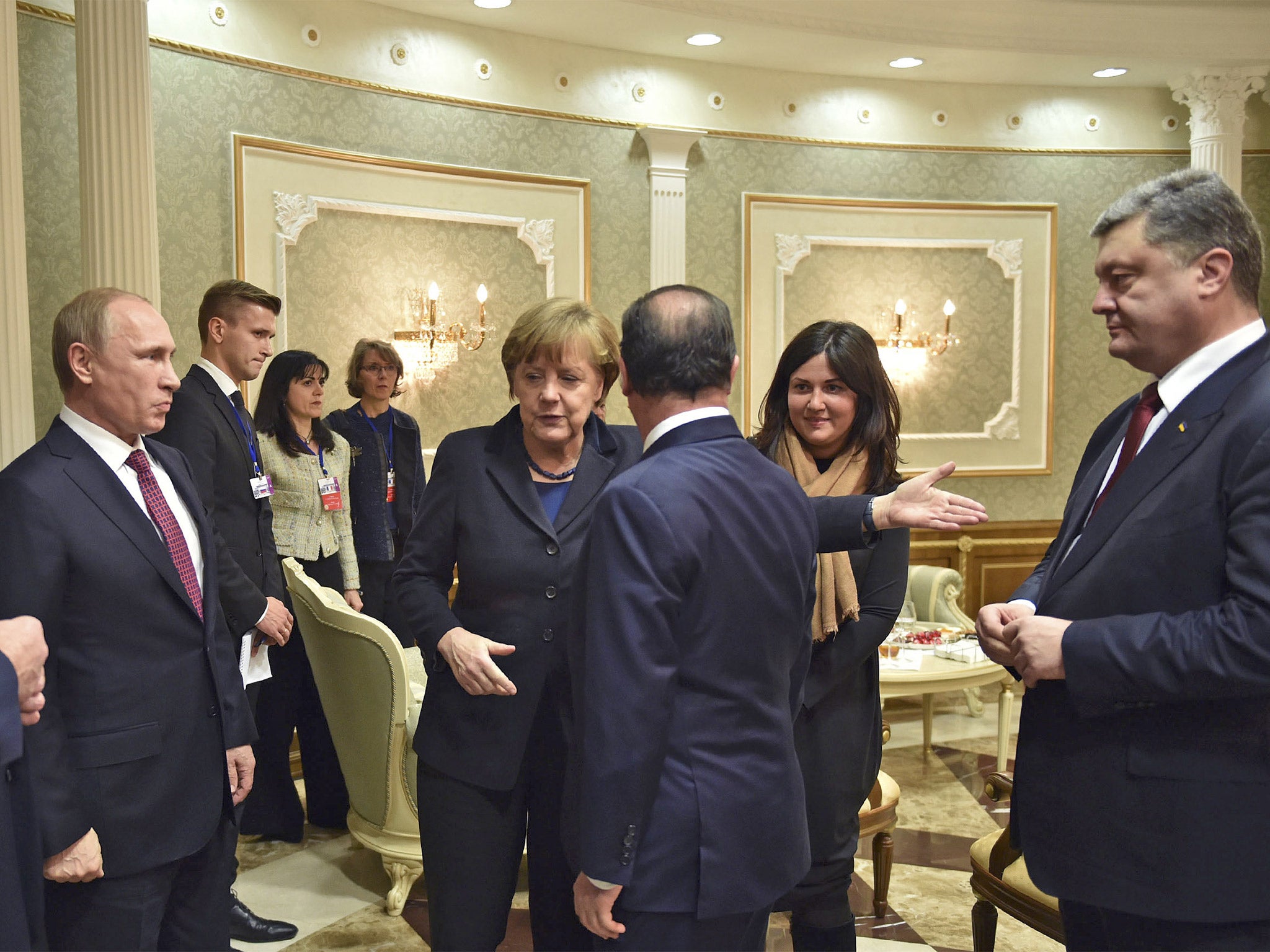On the sidelines: As crises grip Europe, the solutions our partners are striving for lack any meaningful contribution from Britain

Where it is possible to discern it at all, British foreign policy appears to have taken Theodore Roosevelt’s mantra, “Speak softly and carry a big stick”, and reversed it.
In the EU, David Cameron complains loudly but knows that to use his stick – and to lead Britain towards the exit door – would be a disaster for the UK’s economy and its people. On Syria and Iraq, the Prime Minister speaks of a “generational struggle” against jihadism – but our armed forces are hangers-on in the coalition against Isis, according to a report released last week by the Defence Select Committee. In Ukraine, meanwhile, as Angela Merkel and François Hollande throw themselves into last-ditch negotiations, the Prime Minister – who, before the G20 summit in November, implied that Russian aggression in Ukraine mirrored that of Nazi Germany – is nowhere to be seen. The UK has been branded a “bit player” by a former high-ranking Nato commander.
As global security frays, Britain – despite protestations to the contrary – has taken up a position on the sidelines. There are many explanations for this: costly wars in Afghanistan and Iraq; cuts at the Foreign Office; and the rise of nationalist politics, in the shape of Ukip, which has made Britain more inward-looking. But the current non-strategy leaves much to be desired. As Rory Stewart, the chairman of the Defence Select Committee, said on Sunday, Britain is not Denmark. It still has the fifth-largest economy in the world. Government officials have, as a by-product of Middle East wars, an extensive understanding of the region. Until Mr Cameron put distance between Britain and the EU, our influence in Brussels was strongly felt.
This is not the time to call for a more muscular, or hawkish, foreign policy. Nobody seeks a return to the “intervene first, ask questions later” school of diplomacy, as witnessed under the government of Tony Blair. But Britain’s naturally diminished position in the global order does not mean it has to limit itself to – on the one hand – grandstanding, and – on the other – splendid isolation.
With a bit more nous, the UK could return to its position of shaping the destiny of the EU from within, rather than threatening it from without. There are lessons to be learnt from Greece’s negotiations over debt relief with the eurozone, which began in Berlin today. Like Mr Cameron, the Greek Finance Minister, Yanis Varoufakis, has attempted to turn events his way with a form of brinksmanship. Better to attempt to find solutions that might benefit the other members of the EU club, too, than strike out alone. Both Britain and Greece would be hurt more by an exit – from the euro and the eurozone, respectively – than those left behind.
There may be little that Britain could add to the Ukraine negotiations, beyond what it already has, with Mr Cameron pushing for tougher sanctions against Russia late last year. France and Germany have deeper ties to the region. But, given that it has been customary for prime ministers to carry out in person the most pressing foreign negotiations since the tenure of Mr Blair, his presence in Minsk – in place of Foreign Secretary Philip Hammond – would have been welcome. For him to stay away simply gives weight to the view of a Russian official, expressed in 2013, that “Britain is a small island nobody pays any attention to” – an opinion Mr Cameron firmly rejected at the time.
For too long, Britain has been talking the talk on engagement with the problems of the day, but failing to walk the walk. This is a small nation but one with vast experience in diplomacy and foreign affairs. It should be doing better with what it has.

Join our commenting forum
Join thought-provoking conversations, follow other Independent readers and see their replies